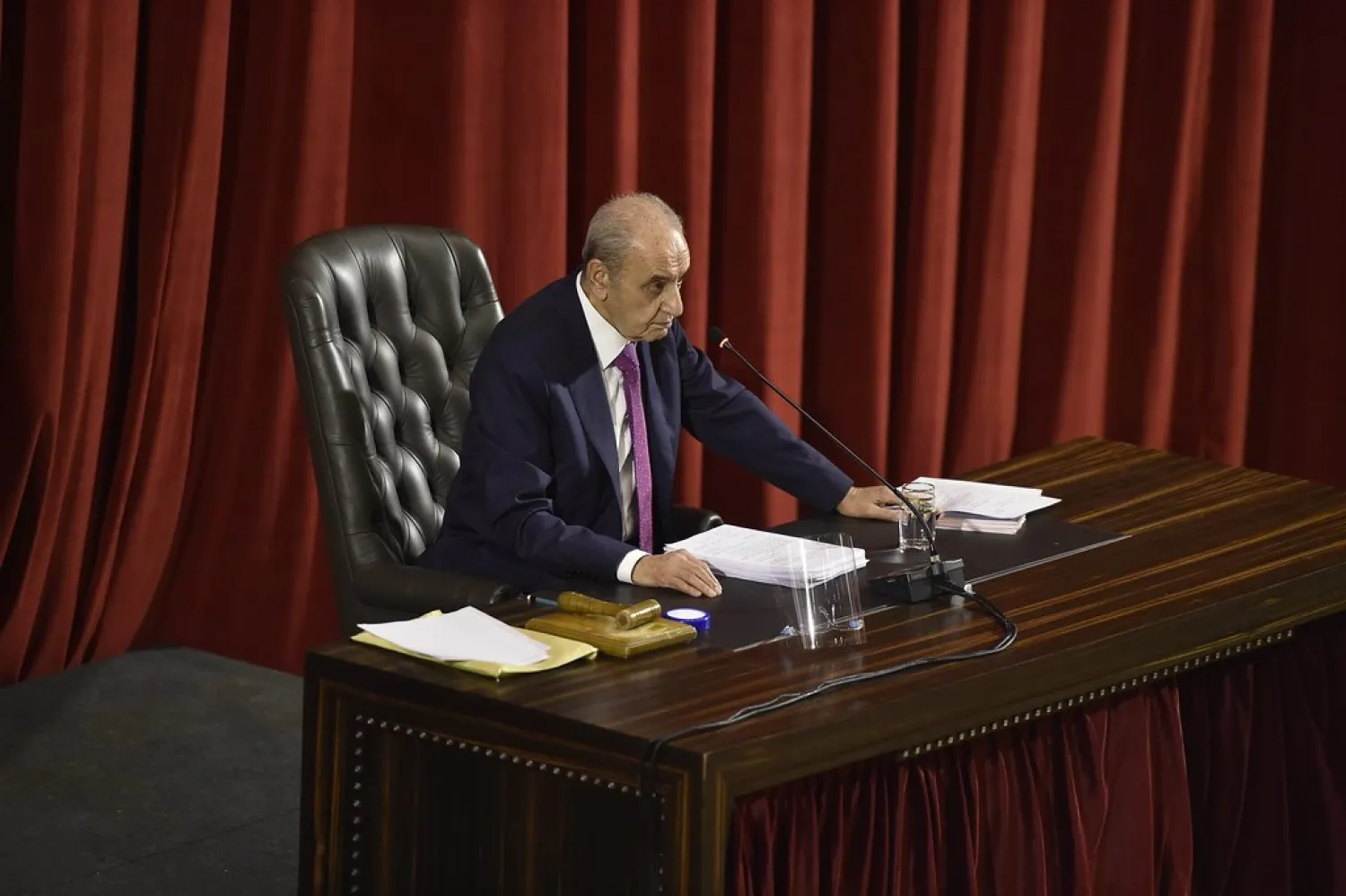Lebanon’s parliament approved on Thursday a number of draft laws during a legislative session that saw several political quarrels, mainly when former Prime Minister Saad Hariri said that the “Free Patriotic Movement wants to control the whole country.”
During its morning session, attended by the ambassadors of Norway, Switzerland and Canada, deputies approved funding for the 2020 state budget. They endorsed a law proposed by Lebanese Forces MP George Adwan on setting the mechanism to appoint first category employees. His proposal included an amendment that annuls the minister’s right to propose the names before cabinet.
All blocs, except for the FPM, approved the law. Head of the FPM, MP Gebran Bassil said he would appeal the move, saying it “violates the constitution, specifically the minister’s jurisdiction.”
Hariri, who held a closed-door meeting with Speaker Nabih Berri before the session, demanded that politicians cease their meddling in administrative appointments.
“The problem lies in the political management of this file. Every party wants to appoint their own figure,” he added, accusing the FPM of wanting to control the whole country.
The parliament also approved a law on lifting bank secrecy for public officials. After the objection of several lawmakers, it amended an article that “allows the central bank’s own investigation committee and the anti-corruption committee” to lift the secrecy.
Hezbollah’s Loyalty to the Resistance bloc MP Hassan Fadlallah said that lifting bank secrecy cannot be effective without an independent judiciary. This proposal does not take into account lifting the secrecy of officials who enjoy constitutional immunity.
MP Wael Abou Faour said the judiciary cannot be trusted as long as it is influenced by politics.
On the divisive general amnesty law, which was kept for last due to its controversy, FPM MP Ibrahim Kanaan said it was unfortunate that the issue was taking on a sectarian form. He said detainees who are held for attacking the army and on terrorism charges must be exempt from the pardon.
Hariri said: “The amnesty is fair to a large number of people. It is very important to us because many people have been wronged. Hundreds of people need to be pardoned, especially since Lebanon witnessed unrest between 2014 and 2016.”
“Some people are trying to portray us as wanting to release criminals and murderers. That is not true. We want people who have been held in jail for years without trial to be released,” he stressed.
MP Hassan Khalil, of Berri’s Amal bloc, said the movement rejects the amnesty law.
“We reject the pardoning of agents who worked for the Israeli enemy,” he wrote in a tweet.
Ahead of a night parliamentary session to discuss the amnesty, Hariri declared the withdrawal of his bloc from the meeting, saying: “Some people want to return us to square one over this issue.”
“As usual, we work with good intentions in mind for the pardon to include as many people as possible, regardless of the reservations expressed by some parties, and the speaker tried to mediate between the differences,” he added, saying some sides were obstructing these efforts.
Berri ultimately abruptly adjourned the night session with lawmakers failing to complete deliberations on the amnesty law.









